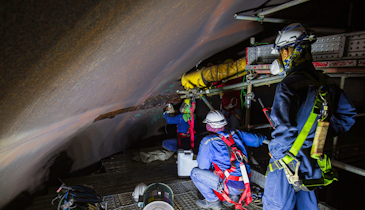The National Rural Water Association has been monitoring the low inventory and supply chain issues of essential water treatment products and equipment needed to provide safe, clean water and wastewater services.
“Recently systems have incurred issues such as delayed or limited access to necessary treatment chemicals such as chlorine and sodium permanganate, and also products such as pipes and fittings,” says Matt Holmes, NRWA CEO.
Last month, NRWA conducted a survey regarding supply chain issues and received more than 900 responses from 26 states. According to the results so far, 23% of utilities said their utility was experiencing challenges securing chlorine. Rural water systems across the country should be aware of this supply chain problem and prepare an alternative plan should the issues persist.
“We should be investing in the labor side,” said Pete Buttigieg, U.S. Secretary of Transportation in an interview with Bloomberg. “In fact, we are teaming up with the Department of Labor to support pathways to apprenticeships to help support the need for more people in the trucking profession.”
NRWA agrees the federal government can assist in fixing this problem and emphasizes Buttigieg’s comments about needing apprenticeships to expedite a solution. The NRWA Apprenticeship Program is facilitating training options to new and incoming water professionals around the country. This program is vital to the industry, especially when preparing and being resilient during a crisis such as a supply chain issue.
“We are thrilled to hear the secretary’s remarks in support of registered apprenticeship programs for essential workers like those in the trucking industry,” says Shannan Walton, NRWA Apprenticeship Program manager. “Just as the trucking industry is important for America’s economy, water and wastewater services are equally important to keep America healthy.”
Some state rural water associations, like the Alliance of Indiana Rural Water, are providing training for water utilities to help them prepare in the event they are affected by a chemical shortage.
“Systems need to identify alternative treatment chemicals, equipment and update their permits, to ensure they can continue to supply safe, clean drinking water and meet regulatory requirements,” said Connie Stevens, AIRW Executive Director.
Florida Rural Water Association is creating a possible alternative list for chemicals in exigent circumstances for operations specialists to utilize.
“Some systems in Florida have contacted our state primacy agency and submitted 1,441 applications to the Environmental Protection Agency to report a shortage,” says Gary Williams, FRWA executive director. “Our field staff are actively working with systems to identify alternatives and have developed a one-page factsheet called Chemical Shortages & Possible Alternatives in Exigent Circumstances.”
Options for water and wastewater utilities experiencing shortages include:
• Contacting your chemical supplier;
• Contacting your state association;
• Contacting the U.S. EPA Office of Ground Water and Drinking Water;
• Or exploring the U.S. EPA’s relief options for water utilities during an emergency.
For more information, contact Jennifer Palmiotto, NRWA senior federal policy advisor, at jennifer@nrwa.org.





